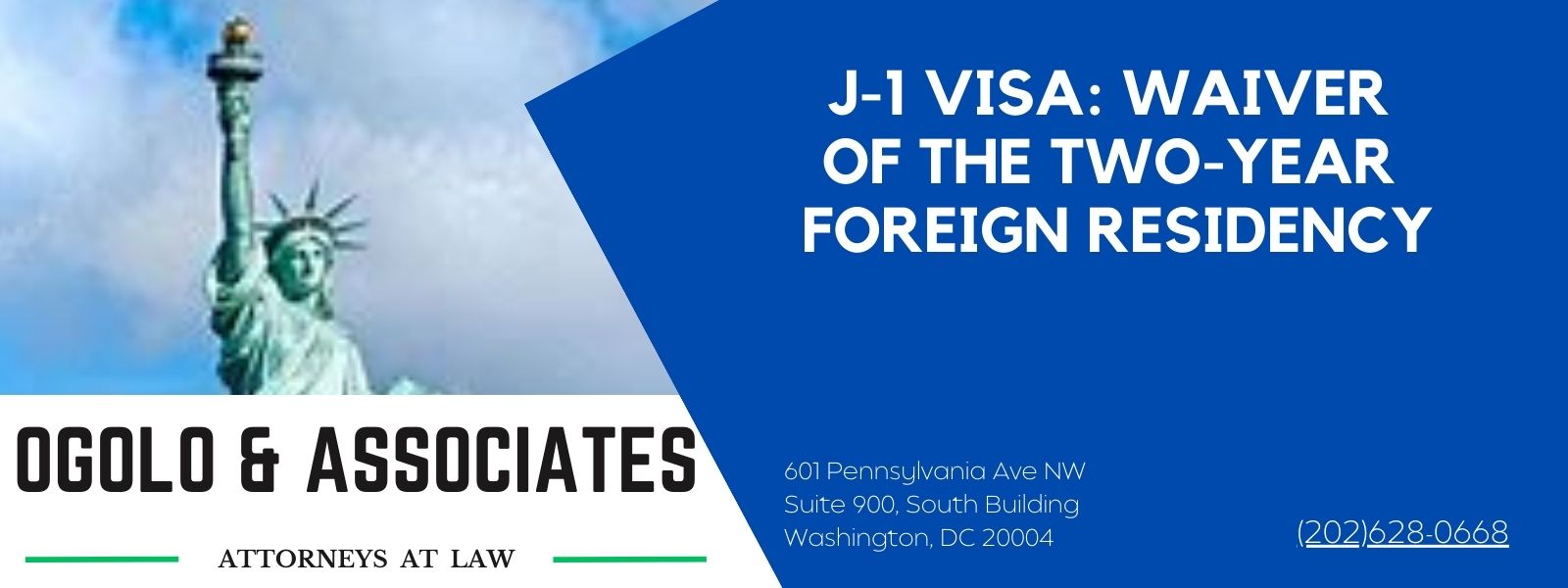Generally, foreigners that came to the United States on a J visa are required to return to their home country and reside there, physically, for at least two years before they may apply for a change of status or adjustment of status in the United States. For those that are subject to the two year foreign residency requirement of J visa, but are unable to fulfill the same, they may apply for a waiver under certain circumstances. Specifically, they may apply to the United States Department of State, Waiver Review Division, for a recommendation of a waiver to the United States Citizenship & Immigration Services. There are five (5) basis for a recommendation of a waiver:
-
NO OBJECTION STATEMENT
You may apply to your home country for a no objection letter. You need to find out the relevant agency in your home country that can issue such a letter/statement. The letter will have to be routed through your embassy in Washington, DC or in the United States for onward transmission to the Department of State’s Waiver Review Board. Generally, the relevant Ministry in your home country will issue such letter through its embassy in the United States. It is not an easy process. It is painful and time consuming. Note that United States Law does not permit foreign medical physicians who came here on J-1 visa to acquire graduate medical education or training to avail themselves of this no objection statement or letter.
-
REQUEST BY INTERESTED UNITED STATES FEDERAL GOVERNMENT AGENCY
If you are working for or participating in a federal government agency project and they deem your services as important to them and they determine that your absence for two years to fulfill the requirement will be harmful to the project, they may request an Interested Government Agency Waiver on your behalf. Most of the Federal Government agencies have designated officials that the the authority to issue such requests. Foreign medical personnel that came here for a graduate medical program may utilize this option as long as they agree to serve in health professional shortage areas or medically underserved areas of the United States.
-
PERSECUTION
If you came to the United States on a J visa and by the time you completed your program, you have a well founded fear of persecution if you return to your home country, you may apply for a waiver based on fear of persecution on account of your (1) race, (2) religion, or (3) political opinion. To do so you must complete Form I-612 – Application for waiver of the foreign residency requirement, to the United States Citizenship & Immigration Service. The Service will forward its decision to the Department of State’s Waiver Review Division. The Review Division will proceed with the waiver recommendation under this basis only if USCIS makes a finding persecution.
-
EXCEPTIONAL HARDSHIP TO A U.S. CITIZEN (OR LAWFUL PERMANENT RESIDENT) SPOUSE OR CHILD OF AN EXCHANGE VISITOR
You may apply for a waiver if your departure from the United States to fulfill the two year foreign residency will cause exceptional hardship to your United States citizen spouse or child or your lawful permanent resident spouse of child. The mere separation from family is not sufficient to establish exceptional hardship. The USCIS will forward its decision to the Department of State’s Waiver Review Division. The Division will proceed with its recommendation under this basis only if USCIS makes a finding of exceptional hardship.
-
REQUEST BY A DESIGNATED STATE PUBLIC HEALTH DEPARTMENT OR ITS EQUIVALENT (CONRAD STATE 30 PROGRAM) If you are a foreign medical graduate who came to the United States to pursue graduate medical education or training, you may request a waiver based on the request of a designated State Public Health Department or its equivalent. To qualify, you must: (1) have an offer of employment at a health care facility in a designated health care professional shortage area or at a health care facility which serves patient from such a designated area; (2) you must agree to begin employment at that facility within 90 days of receiving a waiver; and (3) you must sign a contract to continue working at health care facility for a total of 40 hours per week and for not less than three years.

